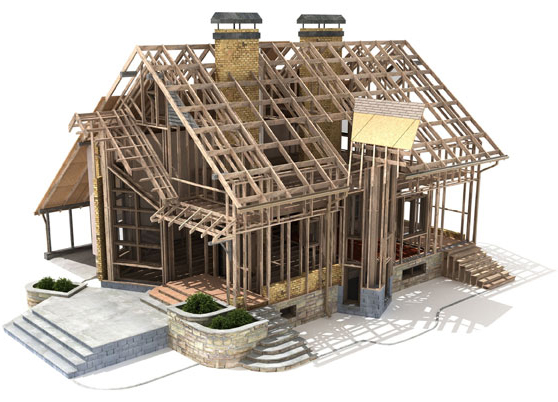Own Dream Home: How to Make it a Reality
Thursday Jan 18th, 2018
Building your dream home takes time, money and courage. Not everyone is prepared for the amount of work, planning and time it takes to make your dream into a reality. That said, it is entirely possible, and it starts from the ground up. House plans are the life blood of your project, and without the proper plans, your dream home may not come into fruition.
What You Want
Before you start ordering or hiring a contractor to draw up your house plan you need to know what you want. Start simple. How many bedrooms do you need? What about the number of bathrooms—do you need a full bath or half bath on the first floor? Get together with your family and write down the needs and wants for each person. From there you can get an outline of things that are “must haves” and what aren’t.
Dive Deeper
Once you have nailed down the particulars, it’s time to start thinking in more logistical terms. How many square feet does your home need to be? How big is the master closet going to be? Do you want an open floor plan in the living room/ kitchen area? These are tinier aspects, but are very important to the process.
Looking for Floor Plans
If you don’t have the faintest idea what you want the layout to be, start looking online. There are numerous sites that range from small home plans to luxury home plans. You can find companies that have ready to go plans as well as custom home plans where designers work hand and hand with you. Both are great options, it just depends on your knowledge, budget and personal preference.
Not Interested in becoming an Owner-Builder? Hire a Good General Contractor
Once you have fine-tuned your house plan, it’s time to find the perfect contractor (if they didn’t already draw up your house plan). When looking for contractors, some questions to ask are:
- Do you have references of past clients I can talk to?
When talking to past clients ask how they reacted to any problems that came up, and if they stuck to their projected schedule. - How do you receive payment?
Try and negotiate a retainer, with a payment plan throughout the project. This way you can leverage your payments as collateral if they lag dramatically or end up not working out. - Do you have certifications?
Some projects need to be built by certified contractors. If your home needs something of this nature it is best to find a certified contractor to do the work. It may end up being more expensive for up-front costs, but you will save money in the long run if you need to hire another contractor later.
Have a Plan B and C
Problems happen. That is just a fact. Many times the problems that arise during the home building process are completely out of you and your contractor’s hands. Instead of laying blame, have back up plans in place. The more planning and back up plans you have the easier it will be to put out any fires as they happen. Also remember things might get bumpy, but in the end you will own dream home.



